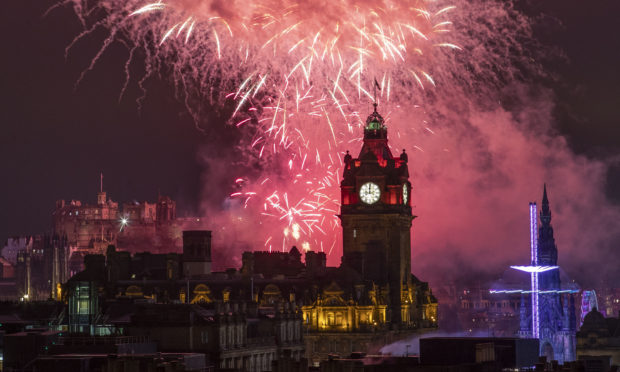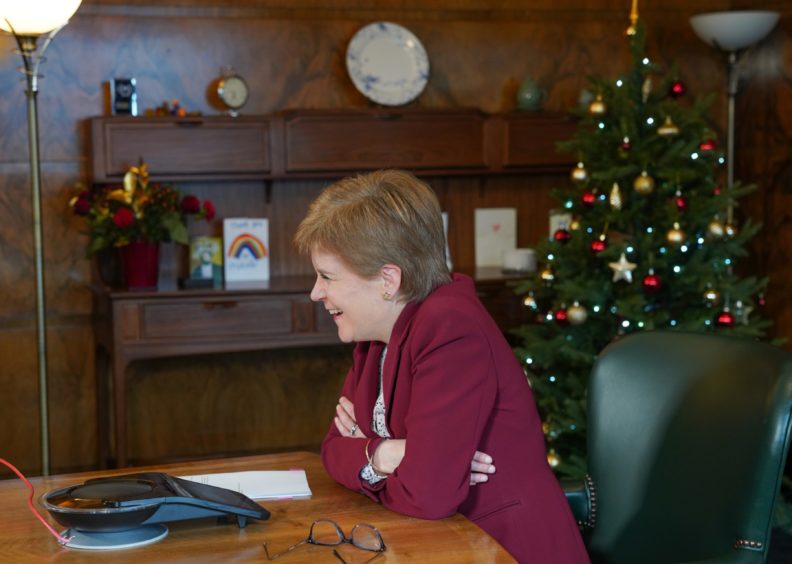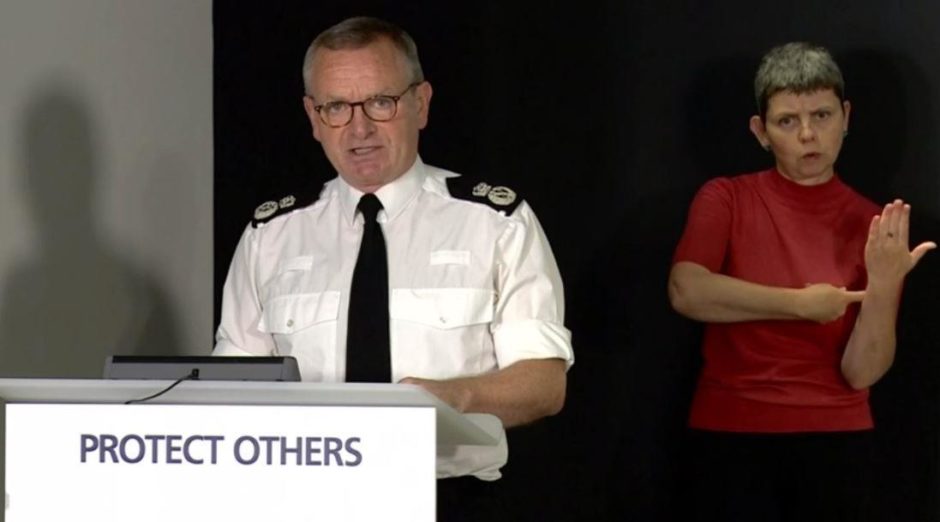Scots have been urged to stay home for Hogmanay as the number of new daily coronavirus cases surged above 1,000 for the first time in two weeks.
Nicola Sturgeon and chief constable Iain Livingstone urged people to “do the right thing” and follow coronavirus restrictions over new year, after an easing of measures for the festive period comes to an end on December 27.
The public was also warned against a large-scale return to shops to pick up last-minute Christmas presents on the day retail reopened across large areas of the central belt, including Glasgow, Edinburgh and Stirling.
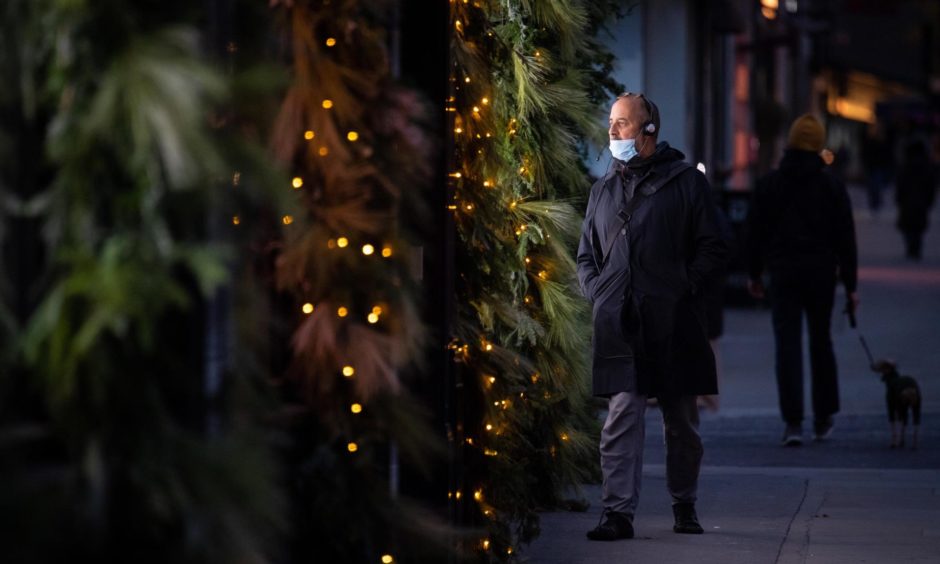
However, ministers are considering whether to hand out shopping vouchers early in the new year as a boost for retailers who have had to close their doors as a result of the pandemic.
Ms Sturgeon confirmed a further 31 deaths and 1,001 new infections had been recorded into Friday, the highest since November 26, but the daily positivity rate actually fell to 4.6%, from 4.7% the previous day.
‘Covid is still out there’
The first minister told the Scottish Government’s coronavirus briefing that it was the highest “in absolute terms” for a number of days and should be a reminder that the virus “has not gone away, it’s still out there, it’s still circulating, and very infectious”.
But she described the positivity rate falling below 5% as an “encouraging” sign because that is the threshold used by the World Health Organisation to determine whether or not an outbreak is under control.
“We’ll all be glad to see the back of 2020,” Ms Sturgeon said. “But I think it’s really important we celebrate the end of this year safely within our own homes and households to make sure 2021 can be the brighter year that we all want it to be.”
Police will prevent New Year gatherings in public spaces
Chief Constable Iain Livingstone said it had been a key rule that people not gather in large groups and the same “still applies” as we head into the new year.
He said: “The truth of the matter is that the vast, vast majority of people understand the reason for not following their normal habits and we have and continue to engage and work with our fellow citizens to explain the reasons behind the regulations.
“It’s the public health imperative to do the right thing, to encourage each other, encourage your neighbours, encourage your family to do the right thing.”
Officers will be stationed in “large public spaces”, the chief constable said, to ensure gatherings do not take place in town and city centres to ring in the new year.
Hazards on the high street
Self-isolation for contacts of people with confirmed coronavirus cases or for those returning from abroad will be shortened from 14 to 10 days across the UK from Monday, Ms Sturgeon confirmed.
She said the change is not expected to have a large impact on transmission but warned of the dangers of people returning to the high street or shopping centres this weekend as restrictions are eased.
“I cannot emphasise enough to you today that the very, very last thing we want to see is overcrowding in or around shops and shopping centres,” Ms Sturgeon said.
She added: “If you do go to the shops and you find the one you want to go to is crowded, perhaps come away and go to another one and come back later.
“And all of us – wherever we live – should be trying to shop locally. By doing that, we can also help to support businesses and jobs in our local area.”
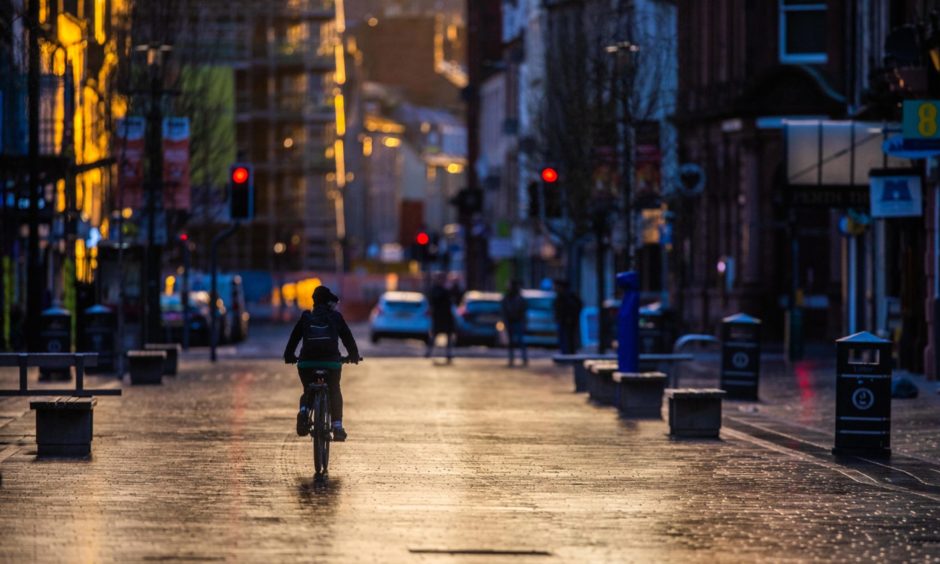
Care home Covid cases
Ms Sturgeon was also challenged on whether there had been a resurgence of coronavirus in care homes after a recent outbreak at Inchmarlo House care home in Banchory, Aberdeenshire, led to more than 40 cases being detected.
The latest Scottish Government data show 11% of all care homes have a current case of suspected Covid-19. For the week up to December 6, there were 269 confirmed positive cases in all Scottish care homes.
Ms Sturgeon said her government is “very focused” on mitigating the risks of coronavirus and “one person dying or getting Covid in a care home is one too many”.
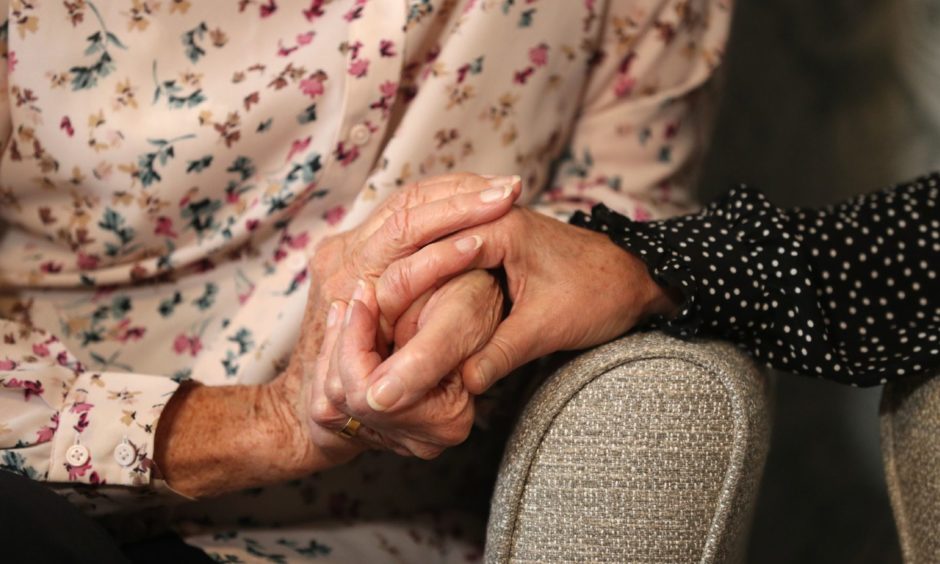
She continued: “Forgive me, I know we’re talking about human beings here and it always sounds a bit cold to be talking about statistics, but they are important because they allow us to get a sense of the situation.
“In terms of the numbers of people in care homes with Covid, the number of care homes that have cases of Covid and also the number of people in care homes dying from Covid – the numbers we are seeing in this second wave are much lower than at the height of the first wave back in the spring.”
Ms Sturgeon said there had been many policy changes around care homes over the course of the year. A testing regime for designated visitors in care homes is being introduced “to build in an extra layer of protection”, she added.
